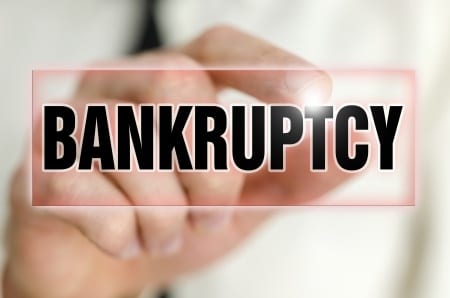 When most people hear the term ‘bankruptcy’ they think of financial catastrophe, failure, and even surrender to the government of their most valued personal assets. This however, is not necessarily always the case.
When most people hear the term ‘bankruptcy’ they think of financial catastrophe, failure, and even surrender to the government of their most valued personal assets. This however, is not necessarily always the case.
In fact, not only are there various types of bankruptcy in which an individual can file, but there are also alternative solutions in place for those whom perhaps can find funding or propose solutions with the assistance of a bankruptcy attorney to avoid having to file at all—or through a different chapter (option).
How Many Types of Bankruptcy Are There?
There are actually two different types (Chapters 7 and 13) of bankruptcy-filing methods for average consumers, and one additional in which is typically designated for corporations or businesses-only (Chapter 11).
While a Chapter 7 bankruptcy filing is focused on liquidating some of your valuables, assets, or even retirement funds to recover and pay off debt, Chapter 11 is more focused on “starting over”. Both of these terms and ideas can sound very intimidating to the everyday person, which is why it’s absolutely essential that you consider the value and investment of hiring a bankruptcy lawyer to represent and guide you.
It’s also worth mentioning, understandably, that the debtors in which you owe money to are almost always going to have an attorney, if not more than one, to represent them and aggressively pursue with legal tactics the recovery of your debt (or their lost funds) and use any means necessary. In other words, your debt-collectors, by principal, have their (or their clients) best interest in mind first, not yours. These companies and individuals are paid to recover lost funds and debts from you, at all costs within abidance of United States law.
This then, is where a bankruptcy lawyer would come into play—some of which can be publicly appointed by the courts, but most in which you will have to pay out of your own pocket or agree to a commission or percentage of any winnings based upon a “settlement” to debtors—when considering all of the financial transactions and fees associated based on the final legal ramification.
Evaluating and Understanding Assets
Many people don’t realize it, and your debtors will be the last to tell you, but you’re actually entitled to keep some of your personal belongings or most treasured items or property(s), such as your vehicle or house for example.
In fact, this is again where legal representation would be most ideal, as a bankruptcy attorney can fight to help keep your house, car, and even current salary—which is especially significant since many debtors, dependent upon amount of government affiliation, will attempt to lien your wages if it escalates to that point.
There are a multitude of other mathematical formulas which might be applied, that are best understood and equated to you and the courts through legal representation in a bankruptcy court setting.
Alternative Solutions
In some instances, as many people have found, it’s not always necessarily pertinent that one declare bankruptcy. A bankruptcy attorney can help light the path for alternative payment options for you, agreements, and plans without all the added hassle and pain of filing for bankruptcy.
Ultimately, one would want to avoid declaring bankruptcy at all costs, as this is a stigma and record that will stick with you for many years to come and might make finding employment, mortgaging a house, car, and even credit card seemingly impossible in the future.
Please Contact Jay Weller at www.jayweller.com or call directly at 1-800-407-3328 (DEBT). You will speak to an actual Bankruptcy Attorney or Counselor, who is well experienced and trained in all matters of Bankruptcy Law, and our Non Bankruptcy Programs.
Image credit: gajus
